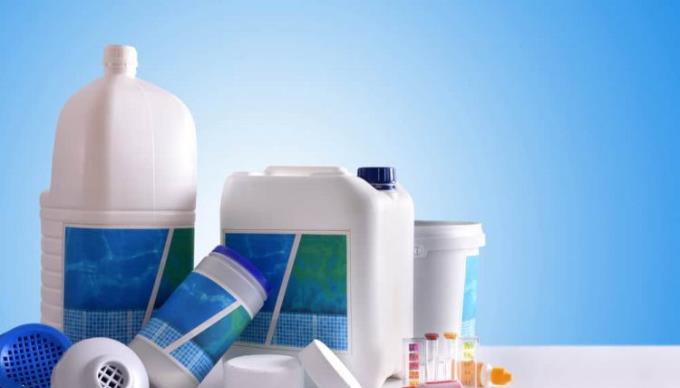Pregnancy is considered a happy process but also causes a lot of worries for pregnant mothers in particular and the whole family in general. Many seemingly harmless factors can be the cause of miscarriage (miscarriage) in pregnant mothers during pregnancy. So what do pregnant mothers do easily to miscarriage and how to prevent them?
In this article, aFamilyToday Health ten friends learn about actions that can cause miscarriage and ways to help pregnant mothers have a safer pregnancy!
1. Consume a lot of alcohol, beer and alcoholic beverages

Alcohol and alcoholic beverages are considered contraindicated for pregnant women during pregnancy. According to the Centers for Disease Control and Prevention (CDC), in the United States, drinking alcohol during pregnancy can cause miscarriage, stillbirth and a range of physical, mental and behavioral disabilities little.
Many pregnant mothers believe that drinking a small amount or drinking alcohol in the third trimester does not affect the baby because at this point, the baby is fully developed. However, many studies have shown that during pregnancy, there is no safe period for pregnant women to drink alcohol, nor is there a minimum limit that pregnant women can drink. Drinking alcohol has many effects on the fetus , in many cases it can cause miscarriage.
Therefore, right from the time you intend to become pregnant or know you are pregnant, pregnant mothers should absolutely avoid the use of alcohol and alcoholic beverages.
2. Consume a lot of caffeine
The cause of a miscarriage may be related to a number of conditions, especially those that limit blood flow to the uterus such as diabetes, thyroid disease, lupus, heart disease or infection of the uterus. Hormonal imbalances and excessive caffeine consumption also contribute to this unfortunate problem. According to a study in the American Journal of Obstetrics and Gynecology, pregnant women consume 200mg or more of caffeine a day (about 2 regular cups of coffee or 5 cans of 355ml soda). contain caffeine) have a double risk of miscarriage compared to those who do not drink.
Caffeine has the ability to cross the placenta to the fetus body, but they are difficult to metabolize because the baby's metabolic system is not fully developed. Caffeine also affects cell growth and reduces blood flow in the fetus, thereby adversely affecting fetal development.
Good sources of caffeine include coffee, tea, caffeinated soda and hot chocolate. Researchers have estimated the amount of caffeine contained in 150ml of different beverages is:
100mg of caffeine in coffee
2mg of caffeine in decaf coffee
39mg of caffeine in tea
15mg of caffeine in soda contains caffeine
2mg of caffeine in hot chocolate
Therefore, you should pay attention to change the habit of using caffeinated beverages if you are or intend to become pregnant.
3. The diet includes a variety of foods that easily cause miscarriage
Certain foods in nature have a very high risk of miscarriage. Pregnant mothers who eat a lot of these foods can increase the risk of miscarriage. So when you know you are pregnant, you should limit these foods to protect the safety of your baby.
You can refer to the foods that easily cause miscarriage in the article: " Foods that cause miscarriage to be pregnant need attention ".
4. Smoke or inhale tobacco smoke

In the first days after conception, the fetus develops very quickly and is also very susceptible to genetic damage caused by cigarette smoke. Problems with the chromosomes are also a common cause of miscarriage. Tobacco smoke also has a risk of affecting the uterine lining, making it difficult for a fertilized egg to implant.
Smoking in the father also contributes to the increased risk of miscarriage. A few studies have found that male smokers have a tendency to increase the incidence of chromosomal abnormalities in sperm. Not only that, but pregnant women who inhale second-hand smoke from their surroundings is considered a very dangerous, passive smoking process. More surprisingly, there were studies that found a link between smoking and miscarriage, but the fetus had completely normal chromosomes. Therefore, smoking increases the risk of miscarriage which may be related not to a problem with the chromosomes, but to other things, like a reduced ability to transport oxygen and nutrients to the fetus.
Note, electronic cigarettes (also known as vaping) or passive smoking also affect the fetus. Therefore, pregnant women should avoid exposure to secondhand smoke as much as possible so as not to increase the risk of miscarriage.
5. Excessive exercise
Moderate exercise and exercise are considered good for pregnant women because they can reduce the risk of excessive weight gain, back problems and help pregnant mothers prepare fully for the process. shallow. However, if you get too active, especially in the first trimester of pregnancy, it can lead to pregnancy and sometimes miscarriage.
Therefore, when you know you are pregnant, pregnant mothers should limit excessive exercise such as running and jumping, carrying heavy objects or exercising with high intensity. Pregnant mothers can try gentle exercises like swimming or gentle yoga. To get the right exercises, you should see your doctor or a specialist for specific advice about exercise precautions during pregnancy .
6. Chemical exposure

One of the factors that increase the risk of a miscarriage is frequent exposure to teratogens or agents thought to disrupt fetal development. Teratogenicity can be toxic chemicals and radiation, some viral or bacterial infections, drugs, even alcohol and tobacco.
Exposure to teratogens during pregnancy can cause different outcomes for people. There are lucky people who do not experience any negative effects, but there are cases of birth defects or miscarriage, premature death, death at birth.
It is not only the mother who is pregnant to be exposed to these agents that affect the fetus. If, before conception, a man has been exposed to certain teratogens, he or she may also increase the risk of miscarriage due to chromosomal abnormal sperm.
In addition, the use of medications to treat the illness can also cause a miscarriage as there are many ingredients that can affect the mother's body as well as the baby.
Doctors believe that frequent or prolonged exposure to teratogens is more dangerous to the fetus than a single or short-term exposure. Therefore, if your job is exposed to a lot of toxic chemicals, you should consult your doctor when trying to become pregnant. In addition, you should minimize the medication intake during pregnancy . In the event of a need for treatment, consult your doctor to weigh the benefits and harms of this on your pregnancy.
A 2006 analytical study found evidence that exposure to the following (career-related) chemical agents may increase the risk of miscarriage:
Heavy metals (workers of heavy industries, dentists)
Organic solvents (works in laboratories, industries and dry cleaning)
Tetrachlorethylene (dry cleaning)
Glycol ether (semiconductor)
2-Bromopropane (electronics industry)
Petrochemical
Ethylene oxide (dental assistant)
Anesthetic gas (in operating room)
Cancer treatment drugs (cancer hospital)
6. Psychological problems
For a long time, people have realized the great effects of psychology on human health, especially in poor health subjects such as the elderly, children and pregnant women.
According to some studies, stress hormones can adversely affect the mother's uterus as well as the baby's development. They believe that, when stressed, the mother's brain releases a hormone called corticotropin-releasing hormone (CRH). In previous studies, researchers found that CRH levels in the blood of women who were born preterm or had a low birth weight were often higher. CRH is a hormone secreted by the brain in response to physical or mental stress. This hormone is also produced in the placenta and uterus of pregnant women, stimulating uterine contractions during birth. Producing too much CRH can cause the uterus to over-contract and cause miscarriage.
Therefore, when determining that you want to become pregnant or know you are pregnant, pregnant mothers should keep their spirits at ease, avoid worrying or put too much pressure on themselves.
Above are the answers to the question "what can I do to easily miscarriage" that many women are concerned about and worried about. Every living being formed in the womb is very sensitive and needs to be protected from factors that could affect their development. Therefore, you should pay attention to the factors that can increase the risk of miscarriage to prevent unfortunate things from happening. Hopefully this article has provided useful information to help pregnant mothers and those about to be mothers have a safer pregnancy.














